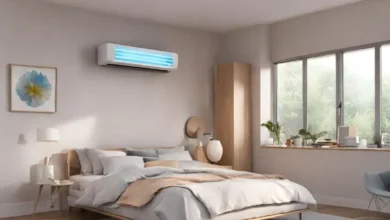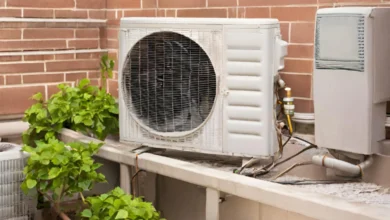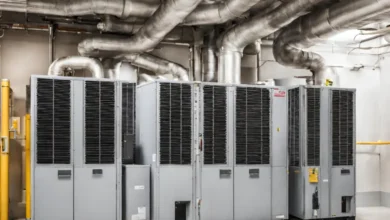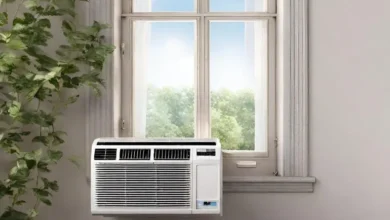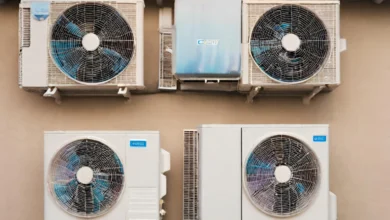Health and Safety Implications of Inadequate Cooling

In the pursuit of a comfortable living and working environment, the significance of effective cooling cannot be overstated. Beyond mere comfort, proper cooling plays a pivotal role in safeguarding health and ensuring the safety of occupants. In this comprehensive exploration, we delve into the intricate web of health and safety implications associated with inadequate cooling, shedding light on the risks posed when temperature control falls short.
Also read: Best AC in India 2024
1. The Physiological Impact of Heat Stress
1.1. Understanding Heat Stress
Inadequate cooling exposes individuals to the perils of heat stress, a condition that occurs when the body’s cooling mechanisms struggle to dissipate excess heat. This can lead to a range of health issues, from mild discomfort to severe conditions such as heat exhaustion and heatstroke. The physiological strain on the body, if left unaddressed, can have lasting consequences on overall well-being.
1.2. Vulnerability of Specific Groups
Certain demographics, such as the elderly, infants, and individuals with pre-existing health conditions, are particularly vulnerable to the adverse effects of heat stress. Inadequate cooling exacerbates these risks, making it imperative to prioritize temperature control in environments where these groups are present.
2. Respiratory Challenges in Poorly Ventilated Spaces
2.1. Impact on Air Quality
Insufficient cooling often coincides with poor ventilation, creating an environment where air quality deteriorates. Stagnant, warm air can trap pollutants and allergens, leading to respiratory issues. For individuals with asthma or allergies, inadequate cooling becomes a catalyst for exacerbating existing conditions.
2.2. Respiratory Infections and Airborne Pathogens
In environments with inadequate cooling and ventilation, the risk of respiratory infections rises. Stagnant air provides a breeding ground for airborne pathogens, increasing the likelihood of contagious illnesses. Proper cooling systems, with efficient ventilation, play a crucial role in minimizing the transmission of respiratory infections.
3. Dehydration and Electrolyte Imbalance
3.1. The Role of Temperature in Hydration
High temperatures contribute to increased perspiration, leading to dehydration if fluid intake does not match the body’s cooling needs. In environments with inadequate cooling, individuals may underestimate their fluid requirements, heightening the risk of dehydration and its associated health complications.
3.2. Electrolyte Imbalance and Heat-Related Illnesses
In extreme cases of inadequate cooling, individuals may experience electrolyte imbalances due to excessive sweating. This imbalance can result in heat-related illnesses, such as cramps, exhaustion, and potentially life-threatening heatstroke. Proper cooling becomes a vital preventive measure against these severe health consequences.
4. Impact on Cognitive Function and Productivity
4.1. The Connection Between Temperature and Cognitive Performance
Inadequate cooling not only affects physical health but also impairs cognitive function. Research suggests that elevated temperatures can lead to a decline in cognitive performance, including reduced concentration, impaired decision-making, and diminished memory. This has significant implications for productivity in both educational and professional settings.
4.2. Workplace Safety and Accidents
In work environments, especially those with manual labor or intricate tasks, the cognitive impact of inadequate cooling poses safety risks. Reduced focus and impaired decision-making increase the likelihood of accidents and injuries, underscoring the importance of maintaining optimal temperatures for workplace safety.
5. Sleep Disruptions and Overall Well-Being
5.1. Role of Temperature in Sleep Quality
A comfortable sleeping environment is crucial for overall health and well-being. Inadequate cooling can disrupt sleep patterns, leading to difficulties falling asleep and staying asleep. Poor sleep quality has cascading effects on mental health, immune function, and daytime alertness.
5.2. Long-Term Health Consequences
Chronic exposure to inadequate cooling and poor sleep quality is associated with long-term health consequences. Increased risk of cardiovascular diseases, obesity, and mental health disorders are among the potential outcomes, emphasizing the profound impact that temperature control has on overall health.
6. Mitigating Risks Through Adequate Cooling Practices
6.1. Investing in Efficient Cooling Systems
To address the health and safety implications of inadequate cooling, investing in efficient cooling systems is paramount. Modern air conditioning technologies, such as variable-speed compressors and smart thermostats, not only provide comfort but also contribute to maintaining optimal temperatures for health and safety.
6.2. Ensuring Proper Ventilation and Air Circulation
In addition to cooling systems, ensuring proper ventilation and air circulation is crucial. Adequate airflow helps prevent the buildup of pollutants, maintains air quality, and supports the body’s natural cooling mechanisms.
7. Educating and Raising Awareness
7.1. Empowering Individuals with Knowledge
Raising awareness about the health and safety implications of inadequate cooling is essential. Empowering individuals with knowledge about the risks associated with heat stress, respiratory challenges, and cognitive impacts fosters a proactive approach towards maintaining optimal indoor environments.
7.2. Promoting Hydration and Self-Care Practices
Educational efforts should also emphasize the importance of hydration and self-care practices in maintaining health in warm environments. Encouraging regular breaks, proper fluid intake, and recognizing the signs of heat-related illnesses contribute to a safer and healthier living and working environment.
Conclusion
Inadequate cooling goes beyond mere discomfort; it poses substantial risks to health and safety. From the physiological strain of heat stress to the cognitive impact on productivity and safety, the consequences are far-reaching. Addressing these risks requires a holistic approach, encompassing efficient cooling systems, proper ventilation, and educational efforts to raise awareness. By prioritizing the health and safety implications of inadequate cooling, we not only create more comfortable environments but also contribute to the overall well-being and productivity of individuals in both residential and workplace settings.


